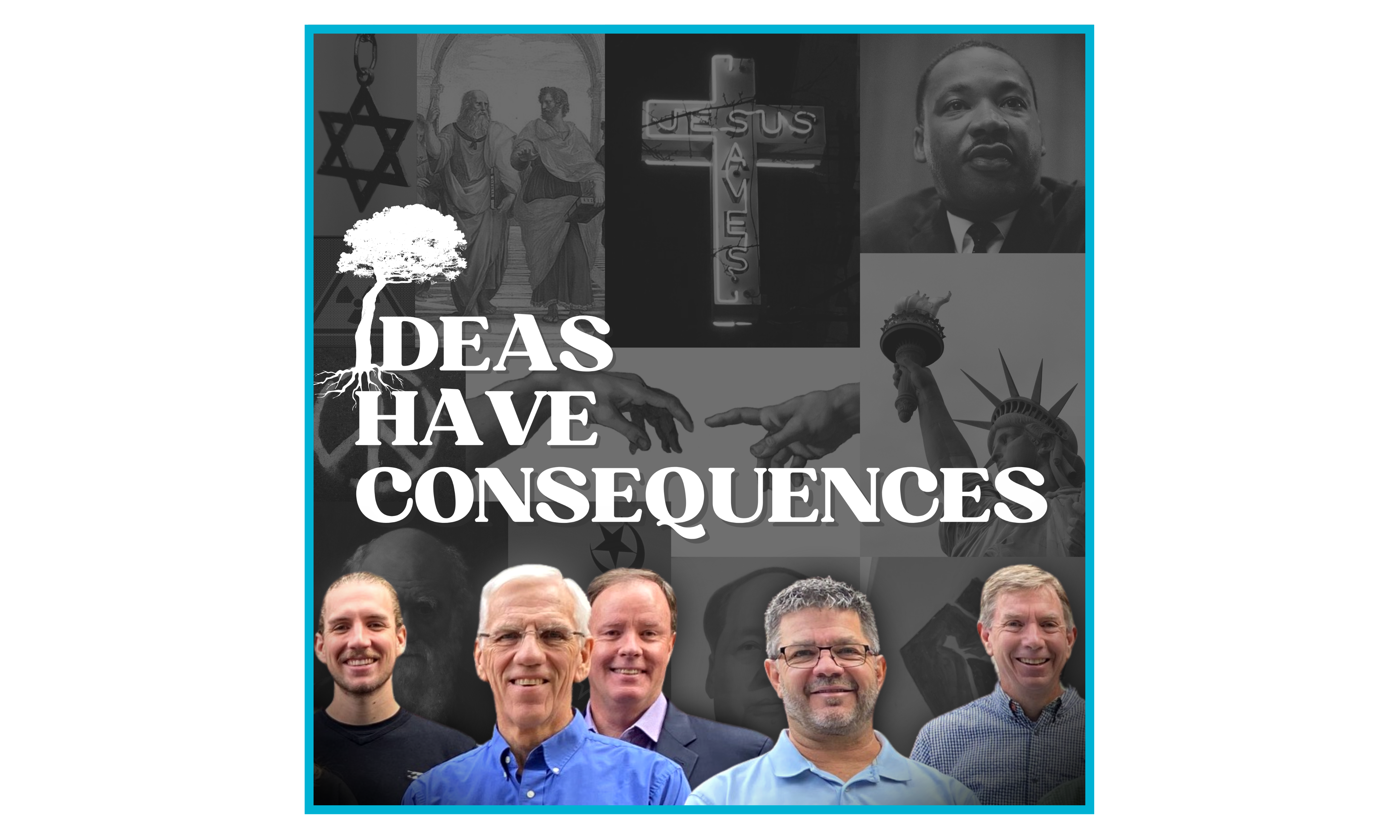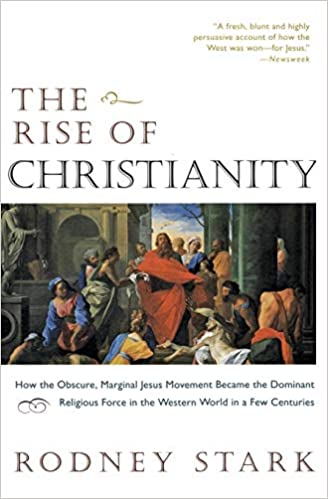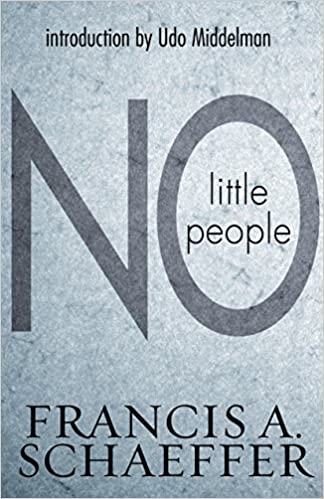At a Glance
Welcome to part 1 of this 2 part series exploring what it means to be human in light of God and his design for us.
One of the bigger implications of being human in light of God is that we have intrinsic value. All humans are made in the image of God, and so all humans are immensely valuable and worth knowing, helping, and saving.
Unfortunately, as the West moves further and further away from its Christian roots, this idea of the sanctity of human life becomes more and more contested. Join us today as we explore human value and just how important this Christian idea is to our cultures.

What You'll Hear
Chapter 1: The Sanctity of Human Life (1:25)
- Christians aren’t just supposed to live lives that are personally changed, but are supposed to go out and change culture around them.
- One of the biggest changes a Christian can bring to the surrounding culture is a belief that all human life is inherently valuable.
- This is because we were all created in the image of God.
Chapter 2: Worldview and Truth (8:53)
- People tend to have a subjective view of worldview, that worldviews are disconnected from reality and everyone has a different but equally true worldview.
- Instead, our worldview is tied to reality, and tied to truth, so when we are legislating reality or legislating worldview, it isn’t imposing a subjective view on others, because worldviews are about true or false views of reality.
- This means that worldviews can be objectively right or objectively wrong, and objectively helpful or objectively harmful.
- It is impossible not to have our laws and cultures shaped by worldviews, so our question shouldn’t be, “Should we legislate worldview?”, but “which worldview should we legislate by?” We should legislate by a true worldview, not a false, destructive worldview.
- As Christians, we have the renewed minds necessary to see truth and are called by God to share it with our cultures, not just for salvation but to disciple the nations.
Chapter 3: Truth That Will Change Culture (17:22)
- We can see the idea of the sanctity and specialness of human life throughout the Bible, but particularly in passages like Genesis 2, Psalms 8, or Philippians 2.
- Humans were made in the image of God to rule and have dominion over the world, and to make and improve the things on Earth.
- Jesus chose to become a man to save us and to show us how to recover our lost humanity.
- The Christian idea of the sanctity of human life can have a huge impact.
- Back when the Roman Empire was persecuting Christians, there was a huge plague, and people would regularly abandon loved ones to die because of fear of catching the plague, but the Christians would come and care for the dying and sick, even though they knew they were risking their own lives, because they were made in the image of God and were people Jesus died to save.
- Slavery was an accepted part of culture until Christians stood up and put a stop to it around the world.
Chapter 4: Christ and His Distressing Disguise (42:17)
- Mother Teresa was an inspiration and put her belief about the sanctity of life into action.
- Mother Teresa talked about how she was drawn to her ministry because Jesus related to the most broken and vulnerable and said that when you serve them you serve me.
- Because of her dedication to this idea, she was able to make a worldwide impact.
- God created us with agency to engage with different problems.
- These beliefs used to be much more ingrained in Western culture, but we are moving away from them.
Using the link above, you can read the transcript, listen along, and adjust the speed of the podcast while you listen.
All human life is created by God, and is therefore sacred. All people have God-given dignity, purpose, and worth or value.
Scott Allen (4:59)
Go Deeper
The Rise of Christianity: How the Obscure, Marginal Jesus Movement Became the Dominant Religious Force in the Western World in a Few Centuries
The Rise of Christianity by Rodney Stark is a sociological exploration of the early Christian movement. Specifically, the book studies the sociological causes that caused Christianity to go from a religious minority being heavily oppressed by the Roman Empire into the main cultural and religious movement within the Empire.
No Little People by Francis Shaeffer
Most Christians take an honest look at themselves and conclude that their limited talents, energy, and knowledge mean that they don’t amount to much. Francis A. Schaeffer says that the biblical emphasis is quite different. With God there are no little people!
This book contains sixteen sermons that explore the weakness and significance of humanity in relationship to the infinite and personal God. The focus of this collection is the lasting truth of the Bible, the faithfulness of God, the sufficiency of the work of Christ, and the reality of God’s Spirit in history. The sermons represent a variety of styles-some are topical, some expound Old Testament passages, and still others delve into New Testament texts. No Little People includes theological sermons and messages that focus specifically on daily life and Christian practice.
Quotes
All human life is created by God, and is therefore sacred. All people have God-given dignity, purpose, and worth or value. -Scott Allen (4:59)
Every law, every policy is going to be rooted in some morality, some system of right and wrong, good and bad. And if it’s not the true one, the biblical one, it’s going to be by necessity one that’s going to be false, counterfeit, and destructive. And that will be legislated. -Scott Allen (9:53)
We celebrate this amazing mystery of God taking on human form, in this helpless baby, and for what it means to be human. I think this is what we don’t reflect on as much as we should. The fact that God himself became man, became a human being, it dignifies what it means to be a human being in a way that nothing else really can. And the fact that Jesus, even today, as he’s seated at the right hand of God, is in human form. When we see Jesus, he’ll be in human form. -Scott Allen (22:24)
Jesus dignifies work, he dignifies what it means to be a human being in all its aspects. -Scott Allen (31:02)
When you start treating or seeing your slaves as human beings with dignity and worth and as fellow brothers in Jesus Christ. That undercuts slavery–that’s what it does. And that’s what happens wherever Christianity has spread, these principles of, “oh, I have a right to enslave you or to use my power to extract a benefit for myself,” that idea can’t coexist with this biblical idea that all people are created by God with inherent dignity and worth and value. And these rights come from God, the right to life, and the right to liberty. -Scott Allen (40:29)





